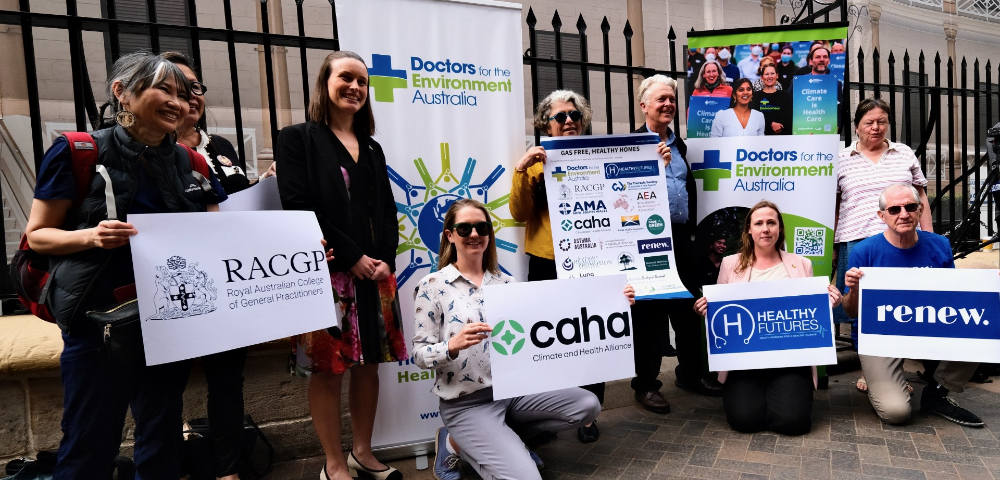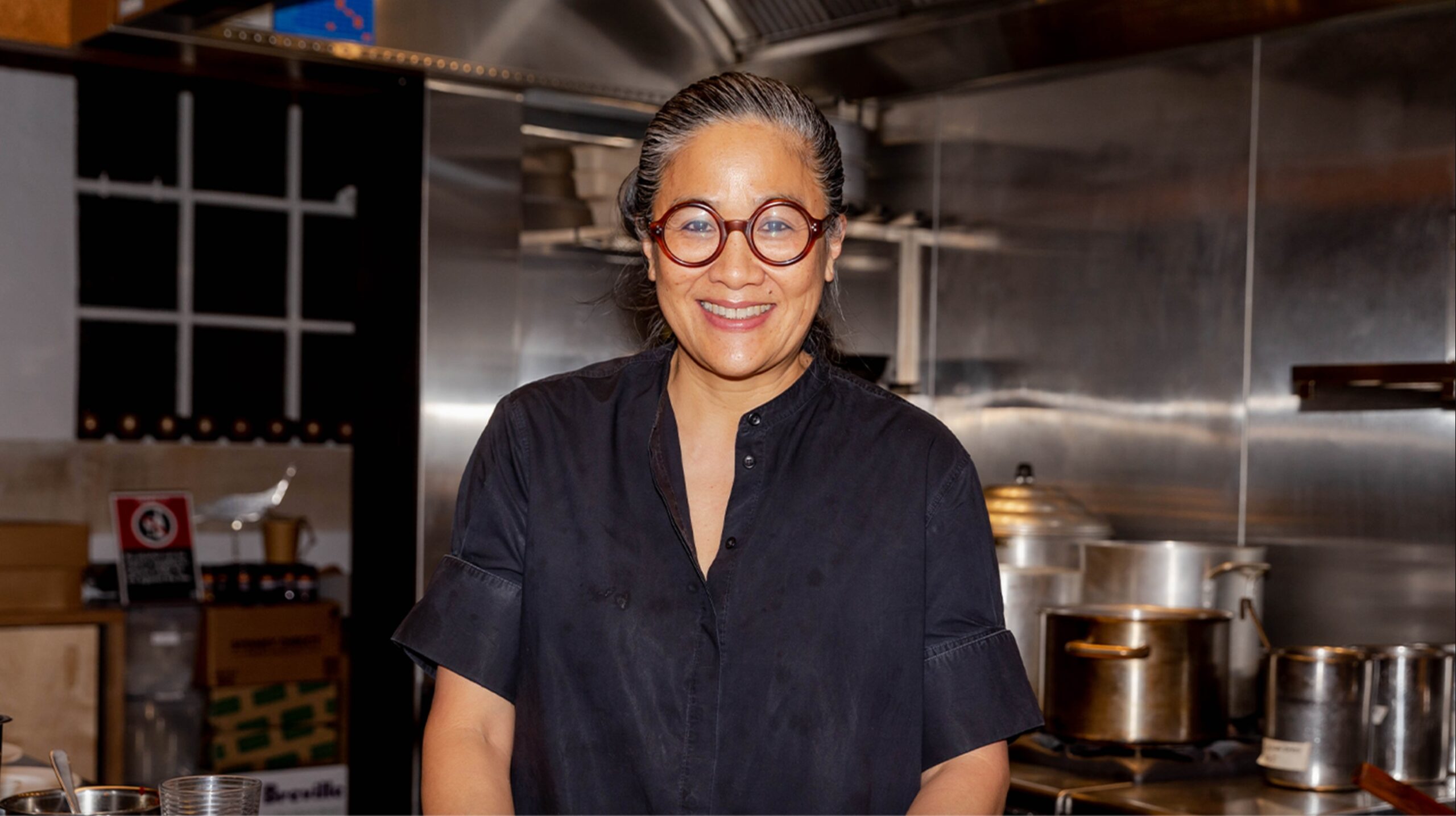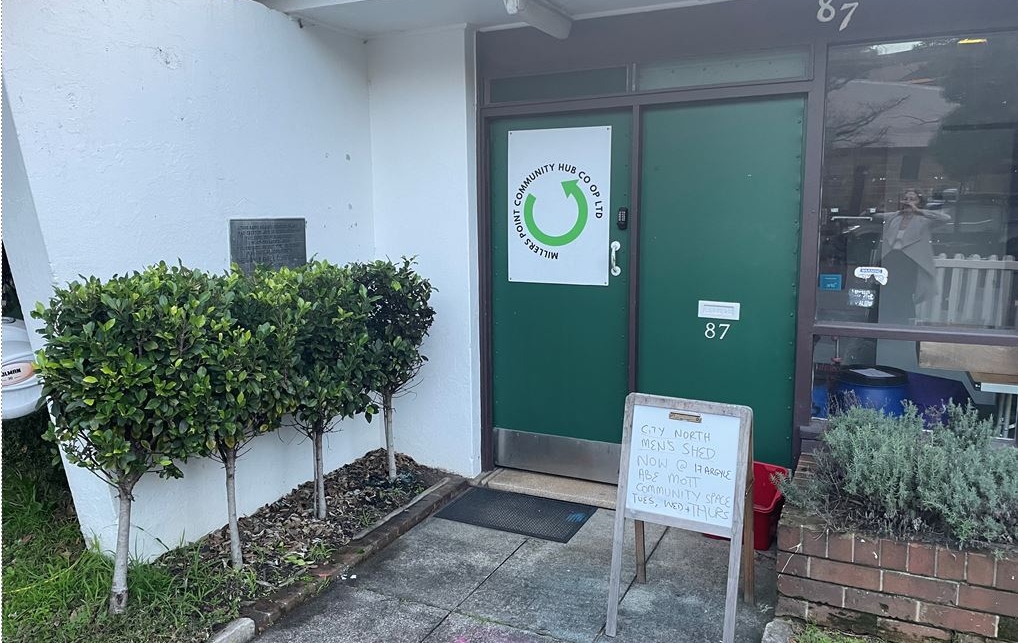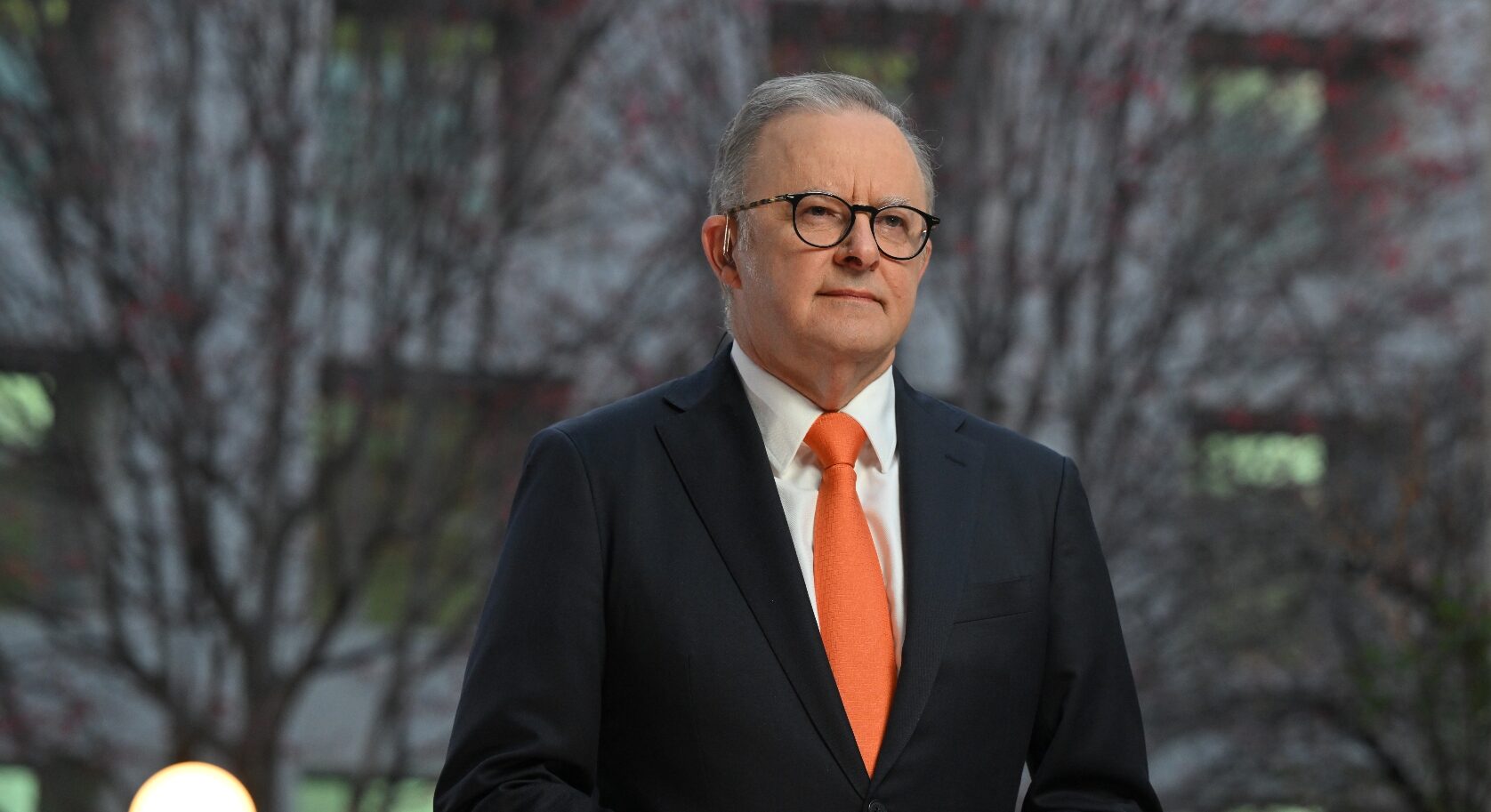

By ROBBIE MASON
The NSW health profession has made an emphatic statement that gas appliances are outdated technologies with no place in the modern home and workplace. Health professionals congregated outside NSW Parliament today to deliver an open letter, signed by a range of health organisations, which highlights the negative health effects and climate change impact of gas use.
Collectively the organisations represent over 100,000 Australian health practitioners.
Health professionals, led by Healthy Futures and Doctors for the Environment Australia, are calling for the NSW government to follow Victoria and the ACT where legislation has enforced the termination of gas connections for any new property developments.
The letter asks the state government to phase out new gas connections to homes by 2025, to commit to electrifying all public and government buildings and to support low incomes households transitioning to electrical home appliances.
Dr Kim Loo, a Sydney general practitioner and member of the Doctors for the Environment Australia NSW Branch Committee who attended the protest, has demanded urgent action.

“The time to phase out fossil gas is now,” she stated.
Dr Ben Ewald, a general practitioner, air pollution expert and epidemiologist in Newcastle, told City Hub that the rise of electric induction means “there are better alternatives” now than household gas appliances.
“We used to think gas was a clean fuel but, in fact, the combustion products from a gas flame and even from a simple gas stove produces nitrous dioxide. That is harmful to health,” he said.
“The health hazards of indoor gas use have not been given proper weight in planning to date.”
“The most direct effect is the asthma effect from burning gas. There’s also some risk – more from gas heaters and stoves – of carbon monoxide build up. That’s really toxic and that comes from heaters that have not been properly maintained,” he continued.
Estimates suggest that pollution from gas stoves accounts for 12 percent of the childhood asthma burden in Australia. The presence of a gas stove in a domicile increases the risk of asthma for children by roughly 30 percent. This is equivalent to a child passive smoking because a member of their household smokes cigarettes.
Additionally, gas stoves and ovens have been linked to carcinogenic chemicals like benzene by Stanford University researchers.
Asthma is a pervasive issue in Australia. The country has one of the highest rates of asthma globally; approximately 10 percent of the population currently suffers from it.
Dr Michael Bonning, President of Australian Medical Association NSW Branch, said, “indoor gas causes known harm to health by creating toxic volatile compounds; this is a real public health challenge that we have to address. The AMA supports common-sense reforms that protect the health of the community against known harms.”
Sarah Ellyard, a Sydney-based nurse, explained that she signed the open letter not only because “gas is a health hazard” but because “the extraction and burning of gas poses unacceptable risks to communities and is driving the climate crisis, which is a health emergency”.

Advocates of a statewide gas ban want the NSW government to intervene with financial incentives to aid the transition away from gas.
Dr Ewald said, “it costs a bit to switch over appliances so we think there is a role for the state government to be involved here with incentive funding or low interest loans.”
Dr Ewald suggested the transition can also help ease the pressures of the cost-of-living crisis, emphasising that electrical appliances are not only more environmentally-friendly but also more cost efficient than equivalent gas appliances.
A report released in October 2022 by the Climate Council highlighted the vicious cycle of gas use and bills that have ensnared Australian households and forced many to choose between heating or eating. That research showed that Sydney households can save $924 per year on energy bills if they immediately switched gas appliances, such as hot water units, heaters, ovens and stoves, to electric appliances.
While the NSW government has resisted a statewide gas ban, local councils such as the City of Sydney have recently stepped up and shouldered responsibility, although the power of councils to reduce gas use is limited.
Current state environmental planning laws prevent councils from dictating more substantial green requirements for property developments than what already exists, according to state planning policy.









